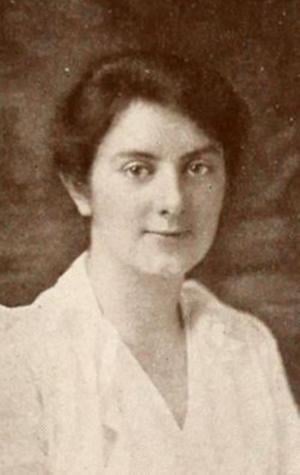UPDATE: New findings reveal that Elisabeth Bristol, an Avondale native, played a pivotal role in documenting the rich musical heritage of Newfoundland nearly a century ago. This groundbreaking work, which began in 1929, has significant implications for the preservation of cultural history today.
Elisabeth, born on August 22, 1895, grew up in a well-off Bronx family before embarking on a transformative journey to rural Canada. In 1920, she volunteered with the Dr. Wilfred Grenfell Mission, which aimed to provide educational and social services to local communities. Her summers spent in the remote town of Bonne Bay sparked a deep passion for the traditional folk songs sung by the locals.
Breaking news: In a recent revival of interest, Elisabeth’s extensive collection of 189 folk songs, documented alongside musicologist Grace Yarrow Mansfield, is gaining renewed attention. Their work culminated in the landmark book, “Ballads and Sea Songs of Newfoundland,” published by Harvard University Press in 1933. The book features songs that reflect the English and Irish influences of the region, alongside lesser-known French and Scottish elements.
Elisabeth’s contributions are particularly significant as many songs had never been written down, risking their loss to history. The collection includes notable pieces such as The Squire’s Young Daughter and The Lass that Loved A Sailor, highlighting the emotional and cultural narratives tied to Newfoundland’s fishing communities.
In their acknowledgments, Elisabeth and Grace expressed gratitude to the local communities for their warmth and willingness to share their musical traditions. They stated, “We are indebted to the men, women and children of Newfoundland who in such friendly and patient fashion sang us their songs and showed us their dances.” This sentiment underscores the human connection at the heart of their mission.
Elisabeth’s impact extended beyond her documentation work. After marrying biology professor William Eben Greenleaf on October 20, 1921, she became a respected lecturer, sharing her experiences and insights into Newfoundland’s culture. Notably, she captivated audiences at the Memorial Library and the Pawcatuck Parent-Teacher Association with her presentations, often donning authentic Newfoundland attire while performing songs from her collection.
Elisabeth’s legacy continues to resonate today, particularly as the world seeks to understand and preserve cultural histories that define communities. Her home in Westerly became a hub for aspiring musicians, including renowned folk artist Pete Seeger, who sought to learn the sea ballads that Elisabeth had documented.
IMPORTANT: Elisabeth Bristol passed away in Westerly in February 1980, leaving behind a rich legacy that underscores the importance of cultural preservation. Her work offers a vital lens into the traditions of Newfoundland, reminding us of the stories and songs that bind communities together.
As interest in traditional music surges, Elisabeth’s contributions serve as a crucial reminder of the power of documentation and storytelling. The revival of her work invites new generations to explore and appreciate the vibrant cultural tapestry of Newfoundland.
Stay tuned for further updates on how Elisabeth Bristol’s legacy continues to shape the understanding of musical heritage in remote communities.







